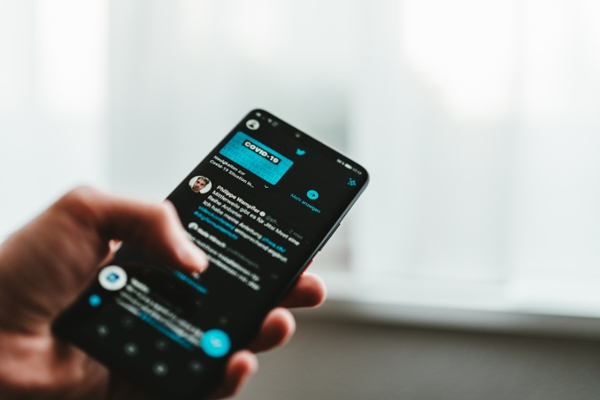
Sitting on our hands with big data in our pockets
The following blog post was originally published as part of the Canadian Science Policy Centre Editorial Series: Response to COVID-19 Pandemic and its Impacts. https://sciencepolicy.ca/response-covid-19
By Tarun Katapally, Associate Professor, Johnson Shoyama Graduate School of Public Policy; and Patient- Oriented Research Leader
When our society has faced existential crises in the past, we have banded together to overcome them. The COVID-19 pandemic is one such a threat that requires cohesive effort, as well as enormous trust, to follow public health guidelines, maintain social distance, and share basic necessities. Are democratic societies with civil liberties capable of doing this?
The answer to this question is perhaps right in our pockets. The Internet connects us all. With more than 3 billion devices currently in circulation globally, if there is one ubiquitous tool that leverages the power of the Internet like no other, it is the smartphone. The idea of smartphones being one of the primary solutions to this global problem might seem far-fetched, until we unpack its potential.
Smartphones provide us with the ability to directly reach and engage with a significant proportion of the world’s population in near real-time. This has immense potential for addressing COVID-19 outbreaks via rapid detection. Moreover, smartphones have the capacity to provide big data via sensors such as global positioning systems. Smartphones can provide data about population movement patterns, which are extremely pertinent to not only understand and implement social distancing and isolation measures, but also to develop predictive epidemiological modeling of virus spread. Finally, smartphones can facilitate real-time interventions to modify behavior and link people with healthcare services, aspects that can be used to manage both the physical and mental health effects of COVID-19. However, for such intensive and intrusive data collection measures to succeed, we need buy-in from citizens.
The policies and responses of governments across the globe have varied in speed and intensity, however, they are inherently based on evidence that COVID-19 is highly contagious. The success of government policies to detect, contain, and minimize the spread of COVID-19 lies beyond healthcare systems that are currently barely coping with the ever-increasing growth of COVID-19 positive cases. Thus, the realization of policies to contain COVID-19 outbreaks eventually depends on the willingness of citizens to follow public health guidelines and abide by laws restricting free movement, which is a challenge in free societies.
Thus, whether it is the ability to leverage ubiquitous digital tools such as smartphones or whether it is the success of government policies to manage and minimize the COVID-19 outbreaks, implementation of these strategies ultimately depends on citizen engagement. Citizen science, which is a participatory approach that ranges from contributory and collaborative methods (data collection and analysis) to co-creation of knowledge (conceptualization and knowledge translation), paves the way for increased citizen engagement during this crisis.
With the increasing power of citizens to effect change, citizen science is earning a place in national science policies of countries such as the United States and Australia by complementing the efforts of governments and health professionals. However, there is currently no coherent citizen science policy to tackle the COVID-19 pandemic. Implementation of citizen science depends on innovative mobile health (mHealth) applications, which should be facilitated by a robust innovation policy. Nevertheless, the ultimate purpose of mHealth and citizen science, particularly from a disease risk management point of view, is to enable digital epidemiological modeling to prevent, detect, and manage the current wave of the COVID-19 pandemic, as well to predict and prepare for subsequent waves. This would require policy intersection across citizen science, innovation, and health.
Apart from the obvious benefits to population health, this approach can enable community empowerment by connecting citizens for a common cause, manage misinformation by directly engaging citizens, and inform evidence-based decision-making utilizing big data. The obvious risks of this approach are loss of privacy and potential data breaches of data, which need to be addressed with stringent data encryption and anonymization. More importantly, ethical surveillance methods such as informed consent, the ability to drop out from participation, and control over one’s own data are critical to embedding citizen science into global pandemic policies.
The big question is, why should citizens comply? The answer lies in incentivizing ethical surveillance. In other words, pay citizens to provide data that will enable enforcement of stringent public health measures necessary to flatten the curve of COVID-19. Some countries are surreptitiously monitoring their citizens’ movement via smartphones. We cannot, and should not do that. At the same time, we are in uncharted territory when it comes to the health and economic consequences of this pandemic. So why not kill two birds with one stone? Let’s compensate citizens for sharing their smartphone data.

